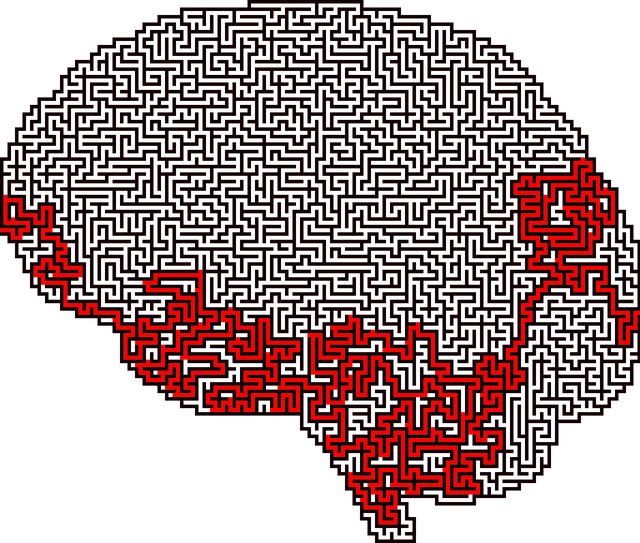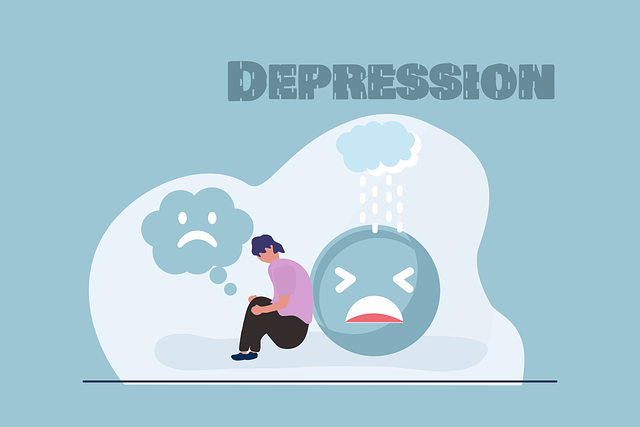Anxiety disorders significantly impact daily life and well-being, with physical symptoms affecting emotional health. Effective Longmont Dissociative Disorder Therapy combines cognitive-behavioral therapy (CBT), mindfulness, and exposure therapy to manage anxiety. CBT identifies and modifies negative thought patterns, empowering individuals to regulate emotions through structured sessions teaching coping strategies like mindfulness meditation. Daily stress reduction techniques, including physical activity, self-care, and positive thinking, are crucial for achieving calm. Longmont Dissociative Disorder Therapy offers personalized approaches, integrating CBT with EMDR, to address trauma-related issues, enhance coping mechanisms, improve emotional regulation, and foster a deeper sense of self. Community outreach and robust risk assessment tools support both patients and healthcare providers in a comprehensive, supportive environment.
Anxiety disorders affect millions, impacting daily life and overall well-being. This article explores effective anxiety management techniques, offering a comprehensive guide for those seeking relief. We delve into the understanding of anxiety disorders, their profound effects, and evidence-based treatments like Cognitive Behavioral Therapy (CBT). Additionally, we present practical daily stress reduction methods and shed light on Longmont Dissociative Disorder Therapy, highlighting its unique approaches and benefits for managing complex anxiety.
- Understanding Anxiety Disorders and Their Impact
- Cognitive Behavioral Therapy (CBT): A Powerful Tool
- Techniques for Daily Stress Reduction and Management
- Longmont Dissociative Disorder Therapy: Approaches and Benefits
Understanding Anxiety Disorders and Their Impact

Anxiety disorders are a group of mental health conditions characterized by excessive and persistent fear or worry that interfere with daily functioning. These include common conditions like generalized anxiety disorder, panic attacks, social anxiety, and specific phobias. Understanding these disorders is crucial for Longmont dissociative disorder therapy as they can have profound impacts on individuals’ lives. People struggling with anxiety often experience physical symptoms like rapid heartbeat, sweating, and difficulty breathing, which can be debilitating.
The impact extends beyond the immediate physiological effects, affecting emotional well-being promotion techniques and overall quality of life. Cultural sensitivity in mental healthcare practice is essential as anxiety disorders manifest differently across various cultural groups. Healthcare provider cultural competency training equips professionals with the skills to offer tailored support, ensuring effective treatment for diverse populations. Effective management strategies may involve therapy types such as cognitive-behavioral therapy (CBT), mindfulness practices, and exposure therapy, which aim to help individuals confront and manage their anxiety in a safe and controlled manner.
Cognitive Behavioral Therapy (CBT): A Powerful Tool

Cognitive Behavioral Therapy (CBT) is a highly effective and widely recognized approach to managing anxiety disorders, including those suffering from Longmont dissociative disorder therapy. This therapeutic method focuses on identifying and changing negative thought patterns and behaviors that contribute to anxiety. By challenging distorted thoughts and replacing them with more realistic and positive ones, CBT empowers individuals to gain control over their emotional responses.
The process involves a collaborative partnership between the therapist and the client, where they work together to set specific goals. Through structured sessions, clients learn coping strategies, such as mindfulness meditation, to manage anxiety symptoms. This not only enhances their ability to navigate triggers but also improves their overall quality of life. Moreover, mental health professionals can benefit from risk assessment tools and effective risk management planning to ensure the best outcomes for their clients while mitigating potential risks.
Techniques for Daily Stress Reduction and Management

In the pursuit of managing anxiety and achieving a sense of calm, incorporating daily stress reduction techniques is a powerful strategy. Longmont dissociative disorder therapy offers a range of practices tailored to individual needs. Mindfulness meditation, for instance, trains the mind to focus on the present moment, thereby reducing worries about the past or future. This simple yet effective practice can be easily incorporated into daily routines, helping individuals cultivate inner strength and resilience.
Additionally, engaging in regular physical activity releases endorphins, which act as natural stress fighters. Even a brief walk or a gentle yoga session can make a significant difference in one’s mental health. Mental Health Policy Analysis and Advocacy emphasizes the importance of self-care and encourages exploring positive thinking techniques to counterbalance anxious thoughts. By fostering inner strength development, individuals equipped with these tools can better navigate life’s challenges and maintain a sense of equilibrium.
Longmont Dissociative Disorder Therapy: Approaches and Benefits

Longmont Dissociative Disorder Therapy offers a range of approaches tailored to address complex mental health issues. This therapeutic model recognizes that dissociative disorders often stem from traumatic experiences, and seeks to help individuals integrate their fragmented thoughts and emotions. Techniques may include cognitive-behavioral therapy (CBT), which focuses on identifying and changing negative thought patterns, as well as eye movement desensitization and reprocessing (EMDR), a method proven effective for trauma recovery. By combining these evidence-based strategies, Longmont Dissociative Disorder Therapy aims to enhance coping mechanisms, improve emotional regulation, and foster a deeper sense of self.
Beyond individual therapy sessions, community outreach programs play a vital role in supporting those with dissociative disorders. These initiatives can include group support meetings, where individuals share experiences and build connections, reducing feelings of isolation. Additionally, risk assessment tools for mental health professionals are essential to ensure safe and effective treatment. By integrating these various aspects—from specialized therapy to community engagement and thorough risk assessments—Longmont Dissociative Disorder Therapy approaches provides comprehensive burnout prevention strategies for healthcare providers while fostering a supportive environment for those navigating dissociative disorders.
In navigating the complex landscape of anxiety disorders, it’s clear that a multifaceted approach is key. From understanding the condition and its impact to employing effective tools like Cognitive Behavioral Therapy (CBT), individuals now have a robust tapestry of strategies at their disposal. For those dealing with dissociative disorders, Longmont Dissociative Disorder Therapy offers hope through specialized approaches, providing a path towards significant stress reduction and improved quality of life. By combining these techniques, folks can revolutionize their mental health journey and embrace a more balanced, fulfilling life.














